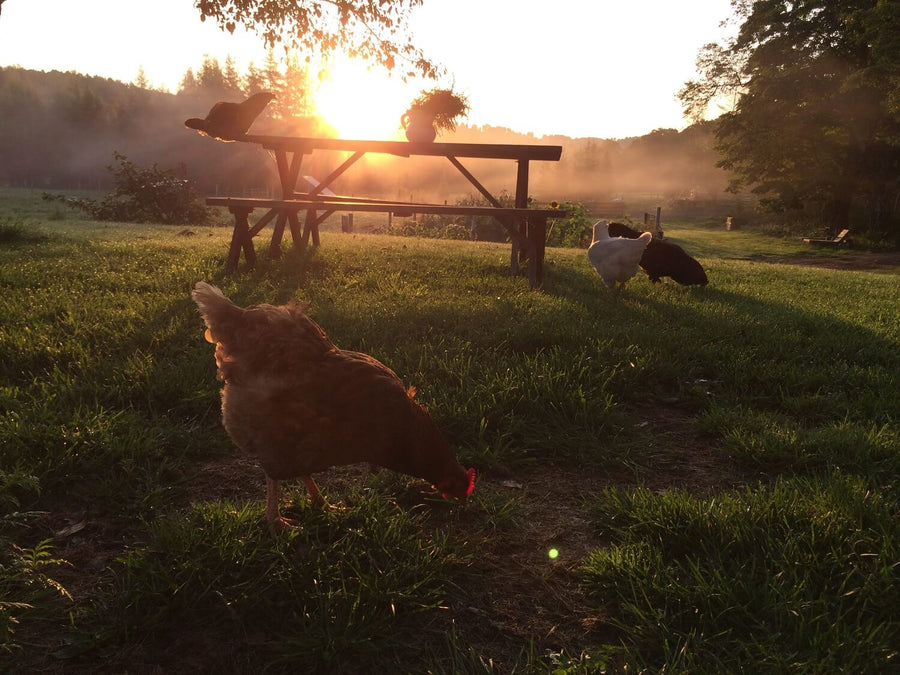
Why local laws for backyard chickens matter
Owning backyard chickens is a fulfilling and fun lifestyle change. It is extremely important, however, to explore the legalities of the activity before you start. The laws for owning chickens vary greatly from one town to the next. For example, rural areas rarely place any restrictions on how many hens are permitted per flock or household. In fact, all fifty states have Right to Farm laws in place to protect farmers and homesteaders from so-called nuisance lawsuits. Unfortunately, suburban and urban chicken keeping is often regulated and does not fall under these Right to Farm protections.
Even within city limits, chicken keeping can be regulated differently from neighborhood to neighborhood or block to block. When considering backyard hens, knowing the answer to the question of legality is a prerequisite to purchasing the birds themselves. There has yet to develop a centralized database for such information, and it is imperative that you don’t rely on a search engine to find your answer, as rules and regulations mentioned in blog posts and newspaper articles can quickly become outdated, especially given the recent groundswell to approve poultry-related measures. Here are a few examples of the ever-changing laws in major cities and urban areas across the country:

Laws For raising backyard chickens in New York City
In all five boroughs of New York City, it is lawful to raise hens with no limit to the number you raise, but other poultry or fowl (such as turkeys, ducks, and geese) are prohibited. The city requires that you do not create “nuisance conditions” (i.e. smell or noise), and they take neighbor complaints into serious consideration.
Laws for raising backyard chickens in Texas
In 2018, a Texas lawmaker filed a bill calling for fewer restrictions on backyard flocks. Historically, there have been varying laws for raising backyard chickens across the state, and the bill calls for standardization on this front. The legislation was passed by the Texas senate in spring of 2019, and as of summer is still awaiting a house vote.
Laws for raising backyard chickens in New Jersey
Raising backyard chickens has become increasingly popular in New Jersey. This means that neighborhood ordinances are constantly changing, with many neighborhoods adopting policies that address chicken enclosures, property lines, and noise.
Laws for raising backyard chickens in Oregon
Portland, Oregon allows chickens and ducks, but requires a permit if you are keeping more than three. Portland does not require a permit for three or fewer backyard chickens, but residents must have absorbent ground cover and keep their chicken enclosure at least 15 feet from neighboring residential buildings.
Laws for raising backyard chickens in Michigan
Detroit, Michigan doesn’t allow chicken keeping at all, while other communities within the state do. Detroit's strict ban on backyard chickens has sparked debate as interest grows, with many pushing for more lenient laws.
Laws for raising backyard chickens in Illinois
Chicago permits both hens and roosters (noise complaints notwithstanding) in backyard settings. Like many cities, Chicago prohibits the keeping of chickens and other livestock in residential areas for the purposes of slaughtering, but pets and egg-laying hens are permitted.

How to find and understand your local laws
To find and understand your local laws, check directly with your town or city hall. Here, administrators can walk you through exactly what is and is not permitted in your town. Once you’ve secured this approval, you should consider talking to your neighbors. You don’t need to ask for their permission, but you should be mindful of how chicken-keeping could affect—and benefit—them. Be sure to make the rounds, sharing with them the exciting prospect and your personal reasons for raising chickens. It would be wise to share with them the occasional half dozen eggs to help solidify their support for your new endeavor.
How to avoid nuisance complaints
Most backyard chicken nuisance complaints stem from issues regarding smell and sound. Individually, chickens produce far less aroma than larger animals like a backyard cow. If you own many hens, however, their space may begin to smell, which is why many cities have stipulations for the number of hens you can keep in your backyard.
When it comes to noise, hen don't usually cause problems, but roosters are another story. Roosters are male chickens and are not strictly necessary to have in order to raise hens. Hens will lay eggs regardless of a rooster’s presence to fertilize those eggs. While a hen is capable of squawking in delight over a newly laid egg, it is from roosters that most noise originates. They crow a beautiful (but loud) call to the day at a very generous (and dark) interpretation of dawn. This call rings out, echoing off buildings and sailing through open summer windows well before most humans are ready to start their day, and at a time when even the bustle of a city is at a gentle lull. As a result, roosters have been outlawed in many densely populated communities, and where they are not, like Chicago, you are at the mercy and understanding of your neighbors.
Adding roosters to your flock
If your town and your neighbors do permit roosters, you should consider adding one to your flock. It is recommended that you keep one for every ten hens; any less, and the roosters will begin to fight over their perceived territory. Though noisy, a good rooster serves the invaluable service of protecting his hens. While hens scratch and peck about their day, a rooster is most often seen with one eye to the sky and the surrounding area, keeping watch against birds of prey and other predators that could cause his flock harm. He communicates to his hens with a series of low murmurs that tell them when to take cover and when to stroll over and share a juicy worm.
Roosters are also integral if you plan on incubating and hatching your own eggs. Roosters fertilize eggs before they are laid, and without a rooster, an egg is incapable of becoming a chick; instead, it will simply be breakfast.
Rooster or no rooster, chicken keeping is a growing movement in urban and suburban homes that once thought themselves exempt from the pleasures of raising one’s own food. If your local laws do not yet permit the practice, consider petitioning the local community to permit backyard birds. With a little outdoor space, you are capable of taking the power of food production into your own hands and quite literally eating the fruits of your labor.

The history of local laws for raising backyard chickens
In the early 2000s, many cities and communities did not allow the keeping of backyard birds at all, but in the ensuing years, a renewed push for local food production, self-sustainability, and animal welfare has seen local governing bodies rushing to catch up and adequately serve and regulate their citizens. Today, backyard hens in suburban and urban areas are no longer the exception to the norm.
Ready to start thinking about chicks? Read on to determine which breeds are best for your backyard.
A note from Pete and Gerry's: For generations, our family of farmers at Pete and Gerry’s Organic Eggs has been dedicated to revolutionizing the way eggs are produced in the United States. We believe that consumers deserve better eggs from happier chickens living on small farms run by fairly paid farmers, and that’s what we have dedicated our business to. We also believe deeply in the transparency and verification of our standards, which is why we became a Certified B Corporation in 2013. It’s also why our farms meet the rigorous Certified Humane Free Range and USDA Certified Organic standards. We take the welfare of our hens, the sustainability of our farms, and health and happiness of our partner farmers and consumers very seriously. The resulting eggs are ones that stand out in the supermarket; they remind consumers of the eggs from their childhood farms and excursions abroad in Europe. And we're happy to be second best. In fact, we believe that everyone deserves a chance to raise hens right in their backyard and experience the joys that come with raising and growing food at home. Kate MacLean of Longest Acres Farm is here to tell you how.
Imtiaz, 8:35 AM
Kate MacLean lives and works on 120 acres of land known as Longest Acres Farm in Chelsea, VT with her husband Nick, son Leland, and daughter Amelia. As an ex-city-dweller, she gained valuable experience working on friends' and neighbors' farms before making the move to rural Vermont with her family in search of a fulfilling, self-sustaining way of life.
Her breadth of experience in farming and raising countless varieties of chickens and other livestock on Longest Acres Farm not only makes Kate an expert in her field, but an advocate for home grown food and self-sustainability.












